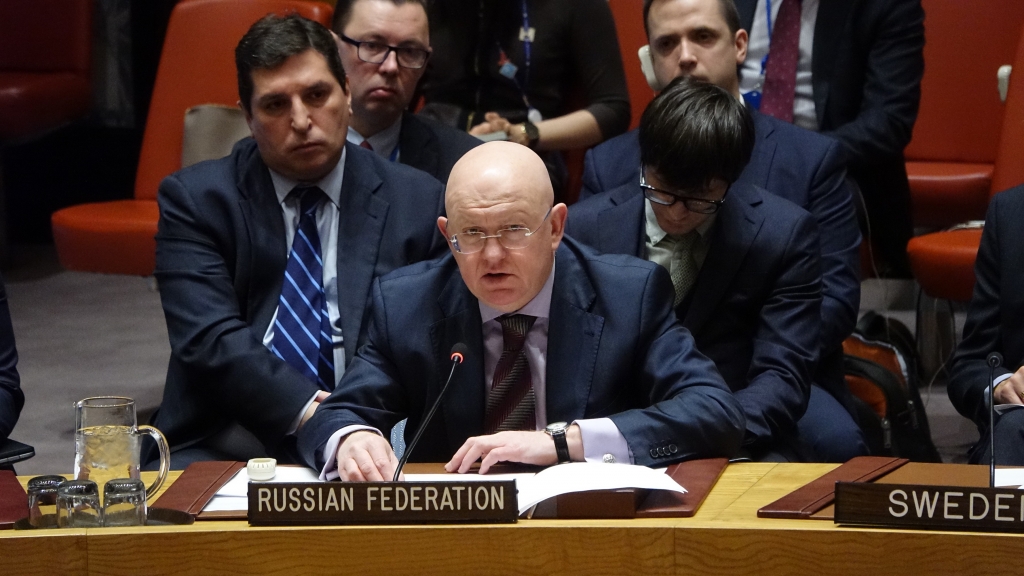Statement by Ambassador Vassily A. Nebenzia, Permanent Representative of the Russian Federation to the United Nations, at the Security Council meeting on the situation in Yemen
We would like to thank Mr. Ismail Ould Cheikh Ahmed and Mr. John Ging for their briefings, and we commend Mr. Ahmed for his work in his post and his contribution, as well as his efforts to reach a settlement to the conflict in Yemen.
We also want to thank the Permanent Representative of Peru for his work as Chair of the Security Council Committee established pursuant to resolution 2140 (2014).
We felt it was important that yesterday we succeeded in extending the mandate of the Panel of Experts on Yemen in a largely technical and apolitical manner. That has helped us preserve a window of opportunity for further non-confrontational cooperation with the aim of making progress towards a settlement in Yemen. The Yemeni conflict is exceedingly difficult and complicated.
We must find ways to launch the peace process without preconditions rather than looking for scapegoats and creating the results desired for geopolitical agendas. We listened attentively Mr. Ould Cheikh Ahmed’s analysis of recent events in Yemen, leaving us a singular historical legacy of the attempts to establish a political process. We hope the new Special Envoy will draw the requisite conclusions from the work that has already been done. We are obliged to conclude that so far we have been unable to get an effective process going.
At the same time, the situation on the ground, particularly on the humanitarian front, has all the appearances of a disaster. The official statistics from the Office for the Coordination of Humanitarian Affairs suggest that 22 million people are in need of humanitarian assistance, although in reality things are far worse. Millions of Yemenis are starving.
The country is in the grip of cholera and diphtheria epidemics. The estimated numbers of casualties of the conflict are more than 9,000 dead and 52,000 wounded. Some 1.5 million Yemeni civil servants in the north and south have not been paid for more than a year and a half. We see and note the fact that a great deal is being done to improve the humanitarian situation.
We commend the efforts of the United Nations, as well as the individual contributions of a host of Member States, including Yemen’s closest neighbours, Saudi Arabia and the United Arab Emirates. However, the characteristics of such regional conflicts lead us to believe that humanitarian assistance alone cannot deliver viable long-term solutions.
It is essential to immediately shift the current situation onto a track leading to political dialogue. In this critical situation, it will be important for the United Nations to have a clear plan for further action. Martin Griffiths, the new Special Envoy, will have a key role to play in that, and we wish him every success.
We hope that in his consultations with all the parties to the conflict he can come up with a plan of action and present it to the Council in his next report.
